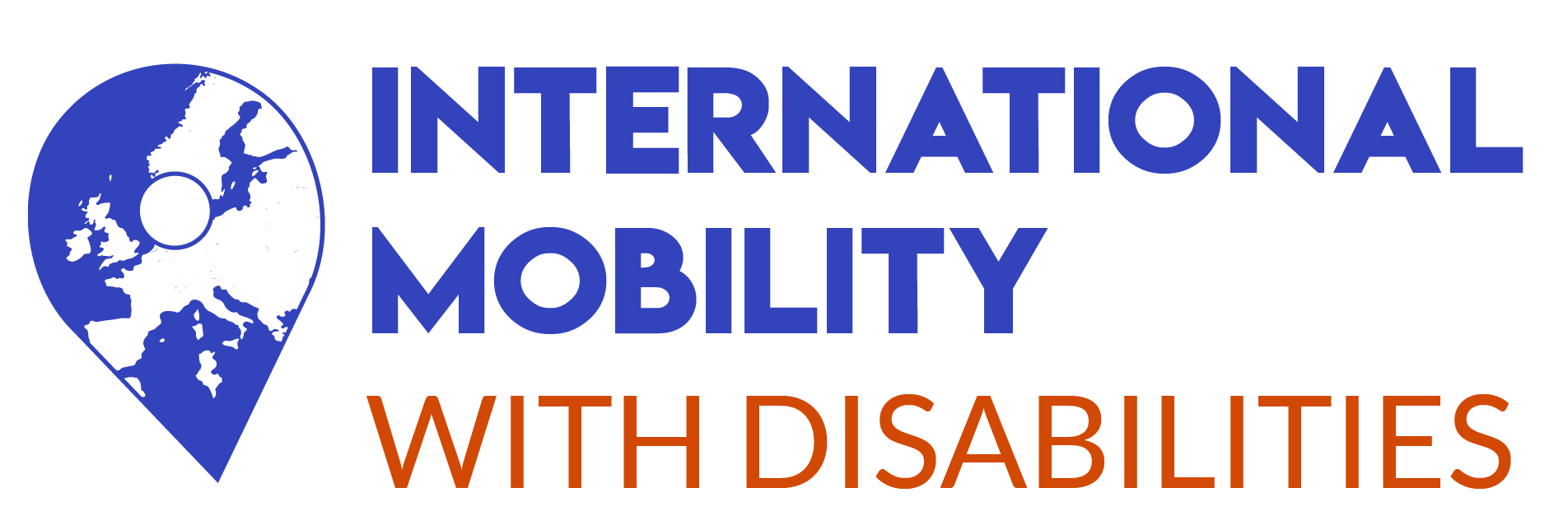Discover our mobili’tips for a successful trip to Ireland! In this article, we outline everything you need to know before going on an international mobility experience in Ireland, but above all, all the cultural features that could be useful to you, especially if you are considering going as a young person with a disability or with people with disabilities.
Language
Official languages
There are three official languages in Ireland. They are:
- English
- Irish (Gaeilge)
- Irish Sign Language (ISL) – legislation was passed in 2017 that gave official recognition to ISL, Ireland’s indigenous signed language.
The most widespread of these languages in the country is English; it is the majority language spoken and the de facto working language in the country. While there are regions in Ireland that are primarily Irish speaking (known as Gaeltachts), you will be able to use English everywhere in the Republic of Ireland while living, working, and studying in the country.
Language around disability
In Ireland, the correct terms to use when referring to the disability community and its members are: Person with a Disability/People with Disabilities. You may see this written as an acronym PWD. This person first language is seen as the most appropriate.
However, there are notable exceptions to this:
- The autistic community have been recently educating the general populous that there is a preference for label-first language. So autistic person or autistic people is the preferred terminology for most individuals within this community.
- The Deaf community also prefers the label-first language; Deaf people, Deaf person. It is also important to note that many deaf people will use the capital ‘D’ Deaf to denote membership of their cultural and linguistic community; the Deaf community.
The language preferences outlined above are by no means limited to Ireland; in the English speaking
world as a whole this is applicable. Some words that are not appropriate and deemed offensive are:
- Handicapped – instead use disabled or disability
- Deaf and dumb – instead use Deaf
- Hearing impaired – instead use hard of hearing
- Wheelchair bound – instead use wheelchair user
It is important to note that language changes and evolves over time and also that not everyone within the disability community is the same. Also that people make mistakes and that’s OK! Particularly if you are coming to Ireland as a non-native speaker, do not get too stressed trying to make sure you say everything perfectly. Just try your utmost to be inclusive and respectful in your language usage and if someone corrects you, take that on board and use the correct term in future.
The key piece of advice we have is: if you are unsure, just ask!
Dialects and Accents
The set of dialects natively written and spoken within Ireland is known as Hiberno-English, or Irish
English.
When living in Ireland you will become acquainted with many colloquialisms not used in other English speaking countries. Some of these take influence from the Irish language, such as the commonly used ‘craic’ from the Irish meaning ‘fun’. This is a term for news, gossip, entertainment, and enjoyable conversation that you will hear very often in Ireland and that will have a slightly different meaning depending on the context. For example: ‘what’s the craic?’ means ‘what’s up/any news?’, whereas ‘last night was great craic’ means ‘last night was great fun’. There are many such terms used in Ireland that will make becoming acquainted with Hiberno-English an interesting experience for you!
For such a small country, there are many different accents in Ireland. Depending on whether you are in the North, South, or West of the country the accents of Irish people will be significantly different. Even within cities – Dublin specifically – the accent can distinctly vary!
Please don’t use Hollywood films for reference as to how these sound! Here is a fun video you can watch that acts as a humorous guide to the different accents in Ireland:
Some other common characteristics in how Irish people interact with each other:
- They are traditionally enthusiastic, witty conversationalists and laid back in how they converse with one another.
- Irish people value humour very highly and this is a core aspect of Irish culture and can often present in the form of self-deprecation or affectionately teasing friends (most often met with a very quick and equally scathing rebuttal)!
- They can be quite indirect communicators, particularly socially. They will often try to avoid conflict and will go to great lengths to remain polite throughout the discussion; avoiding bluntly expressing dissatisfaction or disagreement.
Geopolitical information
Geopolitically, the island of Ireland is divided between the Republic of Ireland, which encompasses 26 of the 32 counties (land divisions) of the island, and Northern Ireland which encompasses the 6 remaining counties and is part of the United Kingdom. The information in this document pertains to the Republic of Ireland. The Republic of Ireland is home to 4.8 million people and the euro is the official currency. Northern Ireland is home to 1.8 million people and the currency used is the pound sterling.
Accessibility
In the Republic of Ireland, it is accepted that there should be easy access to all buildings for people with physical disabilities as laid out in the Employment Equality Act 1998 and the Equal Status Act Further to this, the Disability Act 2005 obliges public bodies to ensure that their buildings (and services) are accessible. The National Disability Authority gives guidance to public bodies on meeting this obligation with their ‘Code of Practice on Accessibility of Public Services and Information provided by Public Bodies’. You can read this here:
Code of Practice on Accessibility of Public Services and Information Provided by Public Bodies
Compliance with this Code of Practice is deemed to be compliance with the Disability Act 2005.
Other Tips
- Bring an umbrella and pack for all seasons! The Irish weather is temperamental and ever-changing; deviating from the norm of any and all regular weather patterns!
- Make the most of what Ireland is known for: breath-taking scenery and landscapes (the Cliffs of Moher are a must!), music, dancing, gigs. Learn about Ireland’s rich history and make a point to visit Ireland’s many heritage sites.
- Have ‘the craic’! Have fun! There is an Irish phrase ‘céad mile fáilte’ meaning a hundred thousand welcomes. We hope that you will experience this warm welcoming Irish culture and have a wonderful experience living in the Emerald Isle.

